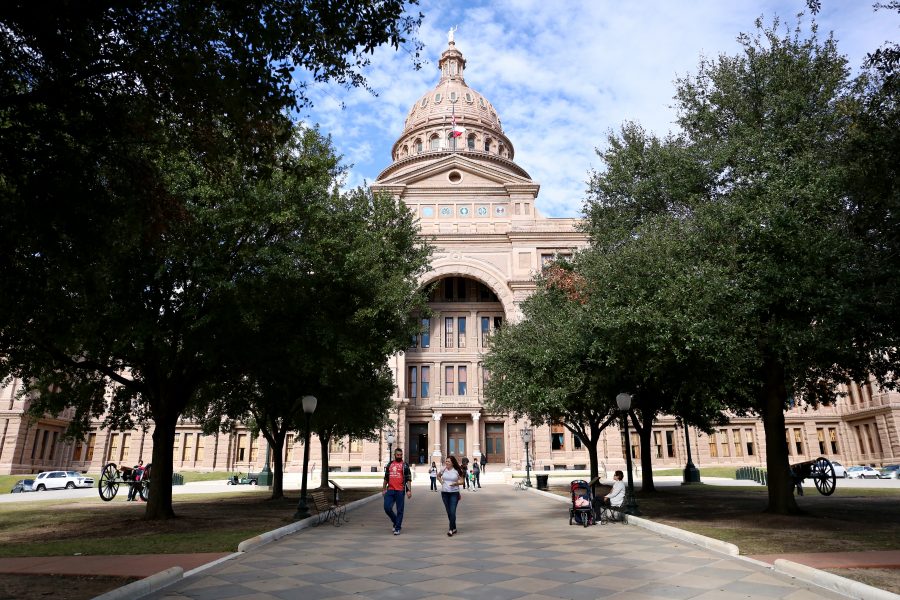During this past legislative session, over 200 education-related bills were passed. Many of these new laws relate to higher education issues and will take effect this coming year.
House Bill 1992, which was signed and went into effect in June, will positively influence future college applicants. This bill will require state colleges and universities to give credit for scores of three or higher on AP tests, potentially allowing high school students to receive college credit for thousands of hours that were previously not allowed. This new law can potentially attract more students to apply for higher education institutions since it is now easier to acquire and transfer college credits.
As the Texas Tribune reported, almost 240,000 students in Texas took an AP exam in 2014, with 124,000 of them scored a three or higher, according to the College Board. This means that, had this law taken effect before 2014, 124,000 students could have gained college credit that they may not have now.
Texas State Senator Larry Taylor (R-Friendswood), Chair of the Texas Senate Education Committee, said that House Bill 1992 will incentivize more high school students to take advance placement tests.
“There are some students who do not take these tests because they are afraid they can’t make a 4 or a 5 and they don't want to waste their time on advance placement course and not get the credit,” Taylor said. “Primarily, this bill helps students pay for higher education, because ideally if a student can get the advance placement credit, it helps making higher education more affordable to our students."
This new law will likely be received well by university administrations, like UT, as well as state school districts. Harris Keller, Vice Provost of Higher Education and Policy Research for UT, the new law will not be disruptive to UT curriculum and that UT Austin is willing to accept the new changes, according to a statement to the Texas Tribune. This is a law that school districts can also support: As Tracy Morman, Director of Guidance and Counseling at AISD, said to ABC Channel 7 Amarillo, this law guarantees credit for students where they may not have been able to get it, depending on the institution, before.
Another bill, Senate Bill 955 , was passed to amend the Texas education code to allow universities to expand their open-enrollment charter school system outside of their county, where they could not before. This bill can potentially allow state universities in Texas to expand and also provide opportunities to attract new potential students.
According to Taylor, the old law created artificial barriers for universities and students in accessing charter schools.
“[The old law] frankly disadvantaged students to have access to a university that wants set up a school for them,” Taylor said. “University charter schools has many advantages for students on the high school level to attend a school led by a university and for teachers to have access to be trained in innovative new techniques in education. This is a good situation for both public and higher education fields. We must foster and encourage much of that innovation as we can in Texas."
These are not the only bills that will affect UT: After making higher education a priority in his campaign, Gov. Greg Abbott signed his new university research initiative into law in June. This new law will provide funding for state universities across Texas to attract nationally and internationally recognized researchers to Texas institutions of higher education.
Taylor praised Abbott’s university research initiative as beneficial and believed it could contribute to economic development in Texas.
“[The university research initiative can] help with the prestige of our universities and also the economy of Texas,” Taylor said. “A lot of grants follow these types of individuals and a lot of companies come out of their innovations, and hopefully a lot of companies can start up in Texas.”
According to UT Media Relations Manager, J.B. Bird, UT also supports Abbott’s new university research initiative.
“UT is thrilled that Gov. Abbott is supporting research funding for higher education in Texas.” he said.
Laws passed into effect such as HB 1992, SB 955, and Abbott’s new university research initiative will allow state universities to expand and offer new opportunities for Texas students. As these bills take effect this year, it will have tremendous positive impacts on Texas students and provide them with new opportunities to succeed. This is an exciting time for Texas as these new laws pave the way for huge expansion of higher education within the state.
Chen is an international relations and global studies senior from Galveston. Follow him on Twitter @ZhelunC.





















